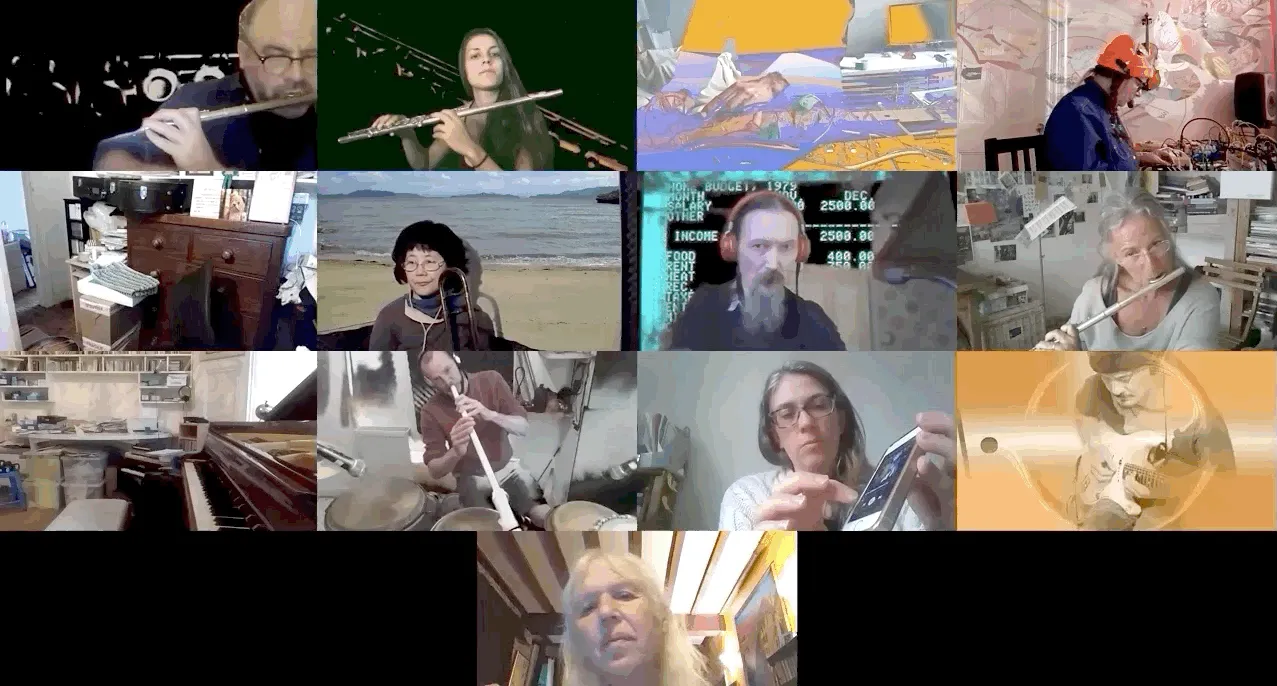Online improvisation sessions by an international group of musicians enhanced mood, lowered levels of loneliness and promoted a feeling of community during the first Covid-19 lockdown, the research found.
The study is the first to investigate the effects of global online music making during the pandemic.

Researchers at Edinburgh College of Art examined the experiences of the Glasgow Improvisers Orchestra – a diverse group of players which includes musicians who have performed with the National Jazz Orchestra and The BBC Scottish Symphony Orchestra.
The Orchestra began improvisation sessions as a way of staying connected during lockdown. Musicians from other parts of the world were also invited to the Zoom sessions.
Researchers interviewed a sample of 29 musicians who took part in twice weekly music sessions from March 2020 to June 2020.
Music communities
As well as boosting their mood and providing community, the musicians reported that the sessions gave them an opportunity for artistic development. The findings also show that improvisation is well suited to digital music making as it facilitates creativity between musicians, the researchers say.
This is despite previous studies finding that latency issues – the time taken for sounds to travel via the internet from one location to another – can affect online music making where musicians are required play in sync.
Researchers say the results can help understand the benefits of online group music in providing emotional support – particularly for creative professionals who may have been adversely affected socially and economically by the pandemic.
There have been many reports of music being used as a potent form of communal activity during the pandemic. These included local communities chanting a song of support in Wuhan, Italians singing from their balconies in Sicily and a DJ playing dance music for the community from his balcony in Glasgow. These vivid examples of music providing social support are supported by a growing body of evidence highlighting how music can enhance health and wellbeing in both clinical and non-clinical contexts.
Professor Raymond MacDonald
Chair of Music Psychology and Improvisation
The study is published in Frontiers in Psychology.
This research was funded by Creative Scotland. It was carried out in partnership with the Glasgow Improvisers Orchestra and the Universities of Monash in Australia, Exeter, Huddersfield, and Glasgow School of Art.
The lead author, Prof. Raymond Macdonald has also published a new book: The Art of Becoming: How Group Improvisation Works which explores the benefits of creative music making that focuses on spontaneous, real-time interactions.

